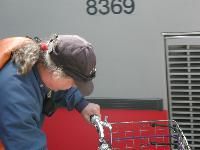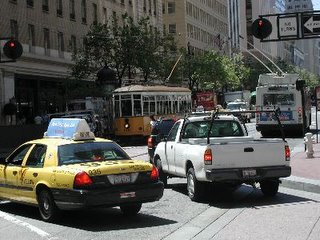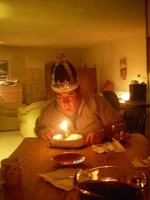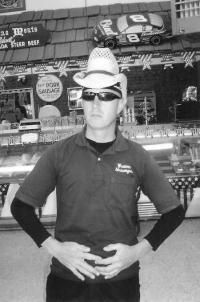Candidate Position Paper: Pledge to Run a Positive Campaign
Candidate Position Paper: Candidate Pledge to Run a Positive Campaign.
January 31, 2006
I pledge to run a positive campaign. That means I will not take cheap shots at my competition. Furthermore, the tone of my campaign will be civil, respectful and professional.
- Things I believe to be valid issues about a candidate are their credentials for office; issues and political positions, who is supporting the candidate; the amount and source of financial donations; nepotistic relationships that benefit the candidate, and whether the candidate has lived in District 6.
- Things I believe to be off limits are using rhetorical polemics, smears, innuendo, a candidate’s personal life, and the candidates family.
This is not to suggest that I will to return fire if attacked. This pledge will not preclude me from defending myself, my positions or my message. As a former Marine and trial attorney, I know how to hit back, and hit back hard.
I understand that the Honorable Supervisor Chris Daly has been criticized for his combative behavior. Let me state my position, and reasoning, for not joining the criticism leveled at Mr. Daly. I believe Mr. Daly is a passionate advocate for the positions he stakes out. Those issues include, amongst others, affordable housing and homelessness. When a person advocates for a disenfranchised and underserved constituency, and is then confronted by powerful economic interests that twist truth, usurp political power from doing the people’s business, and use political tactics designed to confuse and deceive, anyone should react passionately. I believe that reports of Mr. Daly’s combative manner have been spread and over-reported by a complicit corporate media, which allow the utilization of two political tactics refined by the conservative movement.
The first is to take a misstatement of fact, or an insignificant event, and focus in on it, repeat the message with great repetition, and thereby divert the political debate away from issues and policy, and into name calling characterizations (The “Swift Boat Veterans for Truth” campaign against John Kerry is a good example). That is why we all know Mr. Daly as combative, but less so his policies and objectives. By way of example, during the 2004 Presidential cycle, Howard Dean’s “I Have a Scream” speech was repeated escessively by his polical opponents. He was demonized as an arrogant madman, even though his political positions were well thought out, and for the most part main stream.
The second political tactic being utilized is for the politically powerful to make accusations about an opponent or his transgressions of which they themselves are guilty. The utilization of a type of Orwellian new speak, i.e. the political tool of "imaging,” allows them to say one thing, while doing the opposite. Common terms and concepts are twisted and redefined so that they can argue the absurd and make seemingly logical conclusions from unsupportable concepts. Therefore, Chris Daly is overwhelmed by accusations of profanity or incivility, while the political powerful do the bidding of powerful economic interests and subvert the business of the people.
The result is that “Daly's tenure on the Board has been "Chronicled" in more than two dozen editorials with headlines ranging from "Daly's Incivility," "A Walking Embarrassment," "City Hall Civility" to "City Hall Incivility." In some 40 op-ed page columns, the Chronicles' right-wing propagandist Ken Garcia has excoriated Daly as a fool and a court jester, dangerous and unbalanced, a child of privilege, a so-called radical, a Bolshevik and the poster child for the downside of district elections. Whew! Speaking of civility ...” – (SFbayview.com)
Therefore, I will make my campaign about issues. It is on the issues that I will cross swords with my competition, and it is through the issues that I will succeed.





